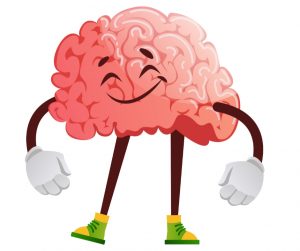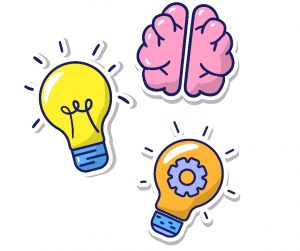Differences Between Being Smart And Intelligent: Smartness and intelligence are often used interchangeably, although one can sense the disparity in the import of the two terms when used. Sometimes the two terms are used conjunctively, for instance, “Obi is intelligent and smart”. Could this mean that being smart is an incidence of intelligence? In other words, is a smart person necessarily intelligent? This would be better answered in the negative since we have already established that there is disparity between the two terms. Yet, one can possess both attributes at the same time. The two terms ‘smart’ and ‘intelligent’ suggests a positive import. In this discourse, we are not concerned with the second meaning of smartness which is the state of being of good-looking. We are rather concerned with that which involves one’s intellectual capacity.

Recommended: Differences between being smart and wise
Smartness therefore is the quality of being equipped with, and the act of exhibiting intellectual knowledge as it relates to books or any other aspect. Being smart is associated with cleverness. Just like intelligence, smartness is not only limited to being book smart; it cuts across every activity of a person as it relates to making use of one’s intellect. It is not in every circumstance that smartness suggests a decent meaning. In the past, the word ‘smart’ has been used to convey one’s capacity to maneuver situations to his favour even at the expense of another.
Intelligence on the other hand has been defined as the capacity of a person’s mind to understand principles, truths, facts or meaning, the capacity to acquire knowledge and apply it to the practical view. Intelligence is characterized by high sense of innate knowledge. Simply put; intelligence is the ability to learn and comprehend.

Also see: Top 10 People with the Highest IQ in the world
This ordinary meaning of intelligence infers certain elements of smartness, and this justifies the fact that intelligence and smartness could be viewed to go side by side. The terms ‘intelligent’ and ‘intelligence’ are of the same purpose but conveys distinct meaning. While intelligence relates to application, the other relates to the potential itself. Thus, possessing a high intelligent quotient implies being intelligent which refers to one’s intellectual potential. Then, when that intelligent quotient is being applied, that is intelligence. It is this application that is the basis used for measuring one’s levels of intelligence.
Smartness is acquisitory is nature, meaning that the attribute of smartness has to be acquired or learned. The term is used in reference to the intellectual abilities that were acquired through learning. Smartness also encompasses the application of one’s intelligence or an already acquired knowledge to a practical situation. While smartness is earned through learning, intelligence is inherent. Intelligence is the measure of one’s inherent ability to learn. It is an attribute which one was born with and not much of it can be altered.

Recommended: How to argue like a lawyer
The attribute of smartness could be acquired by a conscious approach of studying or from other subconscious means of learning which could be from experience.
Generally speaking, being smart and being intelligent are simply similar. The attribute of smartness is a flexible one; it can adapt and change when triggered by the external factor of learning. Intelligence on the other hand can only wear its full import in reaction or in relation to external factors. It is the measurement rate at which one comprehend principles, truths and facts (which are external factors) that determines one’s level of intelligence.
There are different types of smartness. For instance, person can be book smart or smart in business but not be street smart. Once can be smart in a classroom or in a discussion but at the same time, could possess little or less intelligence simply because of the measurement of his cognitive process and his level of comprehension ordinarily. Smartness therefore deals with knowledge of a person which could either be a specific or general knowledge. If it is specific, then the person’s understanding in respect to the particular area or subject is said to be deeper that of a person who has a merely general knowledge. Smartness does not necessarily require that the mastery of information should be one resourced from books or academics. Smartness can also be characterized by the ability to make wise decisions and being quick to figure things out within group of different contexts. A smart person could possess the ability to process with speed due to familiarity with the aspect and not as a result of his inherent capacity.
A smart person is more likely to show the fact that he is smart because smartness is exhibitory.

Recommended: Countries with the best justice system in the world
When someone is said to be intelligent, this can often include being smart as well. This means that an intelligent person can as well be smart, although not necessarily. The term ‘intelligence’ when used generally conveys an extreme range of cognitive process, but specifically the term is relative since it is simply a measure. Intelligence qualifying as a level of comprehension also extends to perception.
An intelligent person need not show that he is intelligent. It is their inherent attribute that eventually manifest in one form or the other, unlike smartness that is ordinarily showy. He has the ability to process factual information with ease with a depth understanding. While smartness relates to one’s speed of thinking, intelligence relates to the extent and the depth of one’s understanding or capacity to comprehend.
The attribute of intelligence can articulate complex thoughts and ideas accurately and deeply, understand the root cause of problem, process a large amount of information to produce clear analysis, and draw logical conclusion. Intelligence also extends to the state of having a great memory. Thus, the ability of one to retain information is also a measure of intelligence.

Recommended: Notable scientists in the world and their discoveries
The attribute of smartness is earned. It can be applied to certain aspect of living such as making smart decisions, business proficiency, etc. the conscious effort of studying and learning is what makes one smarter in that subject matter of study, but it is the rate of his comprehension that measures his intelligence. Smartness may not just come; conscious effort is usually made in order to acquire the status, except for few instances where it could be acquired subconsciously.
Intelligence being inherent, relates to a person’s genetic composition. This means that intelligence is genetic.
Recommended: How to maintain a good relationship with your partner
Another clear description is that intelligence could be associated with being informed on a theoretical basis while smartness is more of one’s practical ability to acquire knowledge and apply them. One who knows things is an intelligent one while one who could apply it is a smart one. As already been pointed out, one can possess both.
Both smartness and intelligence are necessary attributes. Certain situations may arise which requires one to apply both mental qualities respectively. For instance, situations that demands strict time constraint may require more of smart people whereas situations that demands deep thinking and understanding may require more of intelligence.
Recommended: Causes, Effects and Solutions to Brain drain in Africa
Conclusion
The definition of intelligence when looked at closely also incorporates some descriptive attribute of smartness, hence the cause for the usual practice of using them interchangeably. Smartness can be influenced by the environment, exposure, culture and the society. This is not so for intelligence because of its inherent status. Smart people will apply their level of intelligence in an efficient manner for the purpose of achieving their aim.
Thus, its import also extends to maneuvering things around you to you favour. The clear definitive distinction of both terms is basically the acquisitory status and the inherent mature of the two terms respectively.

Edeh Samuel Chukwuemeka, ACMC, is a lawyer and a certified mediator/conciliator in Nigeria. He is also a developer with knowledge in various programming languages. Samuel is determined to leverage his skills in technology, SEO, and legal practice to revolutionize the legal profession worldwide by creating web and mobile applications that simplify legal research. Sam is also passionate about educating and providing valuable information to people.